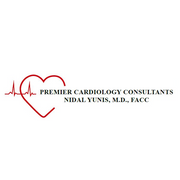5 Types of Heart Tests & What They're Used For

Many cardiovascular conditions—such as high blood pressure and heart disease—don’t produce noticeable symptoms until an emergency occurs. Fortunately, there are many tests available to help medical professionals monitor heart health and diagnose conditions that require treatment. If you have plans to see a cardiologist about a heart health concern, here are a few different tests they may use.
Understanding Tests That Monitor Heart Health
1. Electrocardiogram
During an an electrocardiograms (EKG or ECG), a doctor attaches small sensors to various areas of your body. The sensors communicate with an EKG machine, recording your heart’s electrical activity. The results help cardiologists determine if you have a rapid or irregular heartbeat. An EKG can also detect structural issues with the organ and reveal signs of a previous heart attack.
2. Echocardiogram
 If you’re having an echocardiogram, small electrodes, as well as a special gel, will be applied to your chest. Next, your medical provider will move a probe, or transducer, over the gel to produce ultrasound images of your heart. This visual representation makes it easier for cardiologists to monitor valve function, detect tumors and infections, and measure the blood-pumping strength of your heart.
If you’re having an echocardiogram, small electrodes, as well as a special gel, will be applied to your chest. Next, your medical provider will move a probe, or transducer, over the gel to produce ultrasound images of your heart. This visual representation makes it easier for cardiologists to monitor valve function, detect tumors and infections, and measure the blood-pumping strength of your heart.
3. Exercise Stress Test
An exercise stress test is similar to an electrocardiogram but performed while you’re moving on a treadmill. The test assesses the condition of your heart during physical activity. It can be used to diagnose heart disease, detect heart attack risks, determine the effectiveness of current treatments, and evaluate fitness.
4. Nuclear Stress Test
To start a nuclear stress test, a doctor injects a dyed chemical into your bloodstream and monitors its flow through the heart with a specialized camera while a patient rests and exercises. This test allows cardiologists to observe how well the heart pumps blood. Results reveal if blood flow is adequate or if arteries are blocked.
5. Cardiac Event Recorder
A cardiac event recorder, or Holter monitor, is a device patients wear for a day or longer—up to a month. It produces the same information that an electrocardiogram produces, monitoring how the heart behaves throughout the day.
For an accurate assessment of your heart function, turn to the Premier Cardiology Consultants in Dothan, AL. Their experienced cardiologists use state-of-the-art resources to monitor heart performance, detect complications, and develop custom treatment plans to improve cardiovascular health. To learn more about the conditions they treat, visit them online. For appointments, call (334) 699-6396.
About the Business
Have a question? Ask the experts!
Send your question

